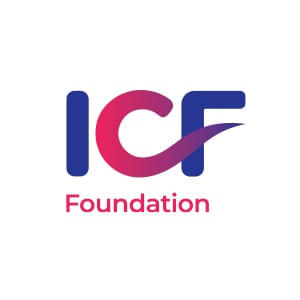7 Best Practices to Consider Before You Begin Your Local Ignite Initiative
The ICF Foundation’s Ignite initiative is a call for individual coaches to team up for change. Through the initiative, coaches provide pro bono coaching to a partner organization whose mission is aligned with the United Nations 2030 Sustainable Development Goals. Over the last few years, we have seen great success in social impact through this project. With specific parameters in place for the coaching projects, Ignite is designed to support the work, provide tools and equip coaches—allowing coaches to focus on achieving the greatest impact. The Foundation has seen great success, as well as has collected learnings and best practices to continue to evolve the initiative. The new iteration of Ignite expands the program in two keyways:
- Eligibility of the coach: Participating ICF-credentialed coaches may include those with an ACC, PCC or MCC. ACC participants no longer need one prior ICF renewal. Also, ICF Chapters and ICF Members both can create Ignite projects.
- Eligibility of organizations as partners: To better respond to the current events of our world, the focus of a pro bono Ignite project can be on any one of the 17 UN Sustainable Development Goals. Ignite projects will no longer be limited to SDG#4 Education.
Coaching in Ignite strengthens the focus on amplifying social impact for mission-driven organizations. Are you considering this opportunity with your colleagues and/or your chapter? The ICF Foundation has collected some of the best practices to benefit from as you are beginning the process:
1) Communicate, Communicate, Communicate
It is important to clearly outline key points of the project for your organization on the front end of planning. This helps to set expectations, not only for your partner, but also for the other coaches participating in the initiative alongside you. Make sure to check in with all stakeholders (partner organization, coaches and initiative co-leaders) throughout the project.
2) Build a Project Management Team
As you create your project, make sure to include your fellow chapter volunteers or members to divide up the task. As John Heywood was quoted, “Many hands make light work.” Inspire, recruit and engage volunteer leadership.
3) Evaluate Potential Partners
Make sure that the mission-driven organization that you partner with is ready. Structuring the coaching to align with their priorities will not only deepen their impact on the local community, but it will also ensure they understand the value coaching will bring to their team. Be patient; it can take some time to find the right partner!
4) Utilize New and Improved ICF Chapter Resources
Coaching in Ignite is focused on creating a ripple effect and amplifying social impact. So, the Foundation has worked hard to create materials that ease the workload for our initiatives so that you can do what you do best—coaching! The Ignite Resource Suite of Tools provide templates, best practices and project materials. You can also connect to the Ignite Basecamp site, which is a fantastic source of peers who are also creating initiatives in their local communities. Our Council of Ambassadors are also available to assist you as you create an initiative!
5) Be Data Informed When Matching Coaches with Coachees
Initiatives can utilize the Coaching Questionnaire to learn and gather more information about the desired goals of the coachee. For the coach side, often asking coaches to fill out a brief survey on their specialties or requesting a resume/CV can help in the matching process.
6) Host a Launch Meeting
Before the coaching engagements begin, host a launch meeting to explain more about coaching and the expectations for the program. This meeting can be held in person (if it follows your local social distancing guidelines) or virtually. Several past initiatives have also used the launch meeting to create excitement for participants and coaches. Observe interactions between coaches and coachees at the event to better inform the pairing process.
7) Measure
In the beginning and throughout the project, be sure to communicate the importance of measuring the initiative’s success with the organizations and individuals involved. As you are speaking with the organization, coaches and coachees, talk about the impact potential. To date, the surveys collected and shared with Ignite have shown that participants said the ripple effect of their gains from coaching impacted operational efficiency (76%) and employee engagement (70%) for their organizations.
Are you ready to make a difference, to explore new horizons with Ignite in your community? Together we will engage through the power of coaching to meet local and global challenges!


